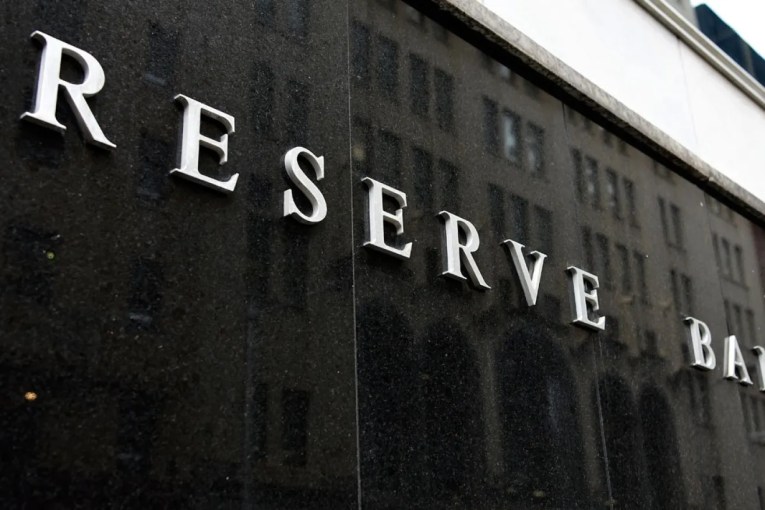Why our fear of ‘Greek disease’ is absurd


Shutterstock
During the mining boom, some economists complained about the impact of ‘Dutch disease’ on Australia’s economy.
The theory was that as the resources boom pushed the dollar sky-high, businesses in export-facing industries struggled or went to the wall.
But just as that problem eases thanks to a lower dollar, another arises.
• No change: RBA keeps cash rate on hold
• Share market hits seven-year high
• Credit card firms face class action
This week all Australians need to watch out for a sudden outbreak of the Australian variant of ‘Greek disease’.
And no, I’m not talking about a staggering public debt, banks teetering on the brink of collapse, or overpaid public servants retiring at 53 on fat pensions.
That’s because in Australia, Greek disease is psychosomatic – it’s all in the mind.
Specifically, our tax-to-GDP ratio is modest by OECD standards, public debt is far from being a drag on the economy, and if consumer confidence can be revived in the months ahead we have every prospect of returning to trend growth.
But will confidence be restored?
This week the government will release the five-yearly Intergenerational Report, which many expect Treasurer Joe Hockey and Prime Minister Tony Abbott to point to as yet another harbinger of doom.
The Coalition’s election pitch in 2013 turned ‘debt and deficit’ into a national bogeyman, but their pre-election promises as to how they would fix the problem made little sense.

This week the government will release the five-yearly Intergenerational Report. Photo: AAP
They promised to scrap the carbon tax (and lose the revenue) but keep all the tax/benefit goodies that came with it.
Mr Abbott also promised no cuts to education, health, the ABC and SBS, and no changes to pensions.
Naturally, when voters saw the real way the Coalition intended to fix the budget – the Medicare co-payment (now abandoned), university fee deregulation and changes to pension indexation in particular – they were horrified.
The Senate, reflecting that horror, has seen off the Medicare plan, and is still unlikely to pass the higher-education reform and pensions plans.
On Coalition figures, the higher ed reforms would save the budget $34 billion over 10 years, the pension changes $26 billion and the Medicare changes $13.7.
For those who already believe the false comparisons with Greece, this will be yet more evidence we are sliding into an Athenian nightmare.
But this is not true, and to keep leaping from ‘Australia’ to ‘Greece’ in this hyperbolic way can only continue to harm confidence.
So what is the real situation?
Yes, there is a decade-long task ahead to repair the structural deficits that current spending patterns imply.
The Business Council has been saying this since well before the last election, and reiterated its view this week – if any government tries to fix the budget too quickly, the attempt will fail as is happening with the stalled savings measures from last year’s budget.
But no, we are nowhere near the Greek tragedy.

Australia is nowhere near the ‘Greek tragedy’. Photo: Shutterstock
This is pretty clearly illustrated by the debt-and-deficit debate happening in the UK – a nation that returned to post-GFC growth much more strongly that its European neighbours.
This week the former Conservative chancellor Ken Clarke told journalists that the Cameron government was on the right track to fixing the UK’s fiscal problems, and correctly pointed to the Greeks and French as examples of what not to do – government spending in those nations is 59.2 per cent and 57.1 per cent of GDP respectively, whereas in the UK it’s 45.5 per cent.
Mr Clarke told UK’s Telegraph newspaper that public spending above 40 per cent of GDP was unsustainable.
He said: “A properly run and organised [economy] should cope perfectly well spending between 35pc and 40pc of GDP. Going above that is the result of problems across the western world, including the UK.”
He also noted that the net public debt in the UK was 79.6 per cent of GDP – that’s too high, and has to come down.
Once again, in the UK it makes some sense to draw comparisons with Greece, where net debt is at 175 per cent of GDP.
But it makes no sense to scare voters from Canberra by dropping ‘Greece’ into sentences about debt and deficit.
The last full financial year for which the ABS has released tax revenue figures for all levels of Australian government (2012-13), federal, state and local governments collected a grand total of $416 billion.
GDP for that financial year was $1.52 trillion, giving a total tax-to-GDP ratio for the nation of 27.4 per cent.
All levels of government have borrowed money to top up these revenues, so spending is running ahead of 27 per cent – but is not even close to the 40 per cent figure that Mr Clarke, one of the towering figures of British conservative politics, thinks should be the upper limit.
Using figures from state and federal budgets last year (rather than MYEFO figures, because they are not available across all states and territories), the net debt forecast for Australia is approximately 14 per cent of GDP accounted for by Commonwealth borrowing, and 6 per cent of GDP owned by the states.
Put together, that’s why any mention of Greece in any discussion of our fiscal problems is absurd – Greece spends 59 per cent of GDP and owes 175 per cent of GDP; Britain spends 45 per cent and owes about 80 per cent; and Australia spends about 30 per cent of GDP and owes about 20 per cent.
Greek disease here is a disease of the mind – and it needs to be stamped out, so that a rational, gradual return to fiscal health can be charted without scaring already nervous consumers.








